The short answer is yes, Bluetooth headphones do work with binaural beats, although there may be some frequency loss, which is dependent on factors such as Bluetooth version, codec, frequency response, and headphone componentry.
This is all pretty technical and probably more than you wanted to know. But don't worry, we'll break all these things down for you in easy-to-understand terms and give you our recommendations for the best brands and models.
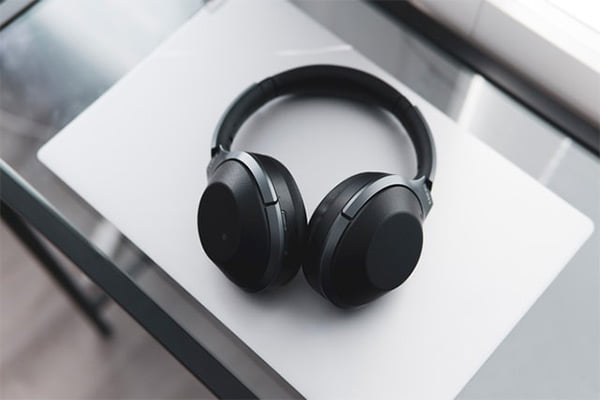
How Bluetooth Headphones Work
Let's face it, headphone cords are getting a little old school now.
They can be pretty annoying, especially when you forget you are wearing headphones, go to get up and get your neck snapped back as the headphones attached to your player reel you back in.
Understandably, you want to go wireless, but you're concerned about a potential compromise on quality. We're audiophiles too, so we completely understand.
So let's look at how Bluetooth technology works.
Bluetooth devices work by transmitting signals from your playing device (smartphone, speaker, TV, computer, etc) to your headphones.
The Bluetooth and your device connect and exchange data over very small distances using low-frequency radio waves transmissions.
There is a tiny chip in your playing device that contains the radio transmitter. This sends the radio signals to the headphones. Your headphones can connect to multiple devices in this way.
Binaural Beats & Bluetooth
Binaural beats actually work in a similar capacity: frequencies (measured in Hertz) are sent to your left and right ears through headphones. Your brain receives these frequencies and perceives a phantom (third) frequency equal to the mathematical difference between the two.
The brain then follow along by producing brainwaves at this frequency.
So the question becomes: Would there be issue with a Bluetooth device sending signals to your headphones through the air rather than a wire, and then your headphones sending the frequencies again to your brain?
Technically speaking, there shouldn't be an issue. The same data is being sent but by a different medium.
Humans have been using technology in a similar way for many years, think about listening to the radio or using a mobile phone; it's the same principle.
However, we know in such instances that there can be a loss in quality when the signal is affected.
Is There Frequency Loss with Bluetooth Headphones?
Yes, there can be, depending on a number of factors. Before we get into these details, though, it's worth noting that your listening experience is only ever going to be as good as the quality of your sound source.
Listening to a low quality mp3 music file at 128 Kbps is always going to sound worse than listening to a 320 Kbps file, no matter how good your Bluetooth headphones are.
1. Bluetooth Version / Codec
The early versions of Bluetooth used codecs that applied heavy compression to the sound, so the difference in quality was quite obvious to the ear of an audiophile.
With the introduction of Bluetooth 4 and 5, brands switched to codecs such as aptX and LC3 (Low Complexity Communication Codec).
These use special bit-rate reduction techniques that replicates the entire frequency range of the audio while allowing the data to fit through the Bluetooth “pipe” wirelessly.
The data rate is equivalent to that of a music CD (16-bit/44 kHz).
2. Range
Range is important, because the further you move away from your device the worse the signal quality gets.
Bluetooth 5.0 has four times the range, two times the speed of older versions of Bluetooth. Bluetooth 5.0, devices can use data transfer speeds of up to 2 Mbps, which is double what Bluetooth 4.2 supports.
Devices can also communicate over distances of up to 800 feet (or 240 meters), which is four times the 200 feet (or 60 meters) allowed by Bluetooth 4.2.
That said, the closer to your device you are, the better the signal (frequency response) is likely to be.
3. Headphone Componentry
Not all headphones are created equally.
Even if your headphones have Bluetooth 5.2, if the headphones are cheaply made then the sound won't be of good quality anyway. The headphones may have a lower quality receiver, which will affect the signal too.
Headphone sound quality depends on the size of the diaphragm, which is indicated by the driver's diameter: the larger the diameter, the better the sound. This is the reason we recommend over-ear headphones instead of ear buds; because the over-ear headphones have a larger driver.
The driver turns the electrical signal into sound pressure; it creates the sound. Driver's are made up of magnets, voice coils and the diaphragm. If any one of these components is inferior in quality, the sound can be affected.
4. Frequency Response
Frequency response isn't really a good indicator of sound quality, but a good frequency response range is required for listening to specific types of music.
For example, if you want to hear more of the low-end frequencies of a style of music, go for headphones that support low bass frequencies, and the same for the high end.
The human hearing threshold is cited as being 20-20,000Hz, and most headphones have a response of around this level. But more professional headphones will state frequencies outside of this that perhaps go as high as 30,000 Hz and as low as 5 Hz.
Not everyone will be able to hear to these levels but the added capacity provides more room for perceived low end and airy high end sounds.
Also consider the device from which your signal (music) is coming from: It is likely that your device's frequency response and your headphones' frequency response are different.
For example: if you have a device that has a Hz range between 15-22,000 Hz, and your headphones are 19-19,000 Hz, the range will be governed by the headphones, as they have the lower range.
———
In summary: Bluetooth technology has come a long away, but sound quality and frequency response is still largely dependent on the quality of the headphones.
Which Bluetooth Headphones Are Best for Binaural Beats?
It's a fairly tough question because there's not a lot of information available on frequency drop-out range, unfortunately.
No brand wants to advertise that their product loses sound quality at a particular distance, or that it doesn't perform well in a certain frequency range.
For these reason, it is best to stick with the brands pushing the boundaries of wireless technology and who are renowned for using quality parts.
If you are keen for a recommendation, then check out the following three models.
1. Sennheiser PXC 550-II Wireless
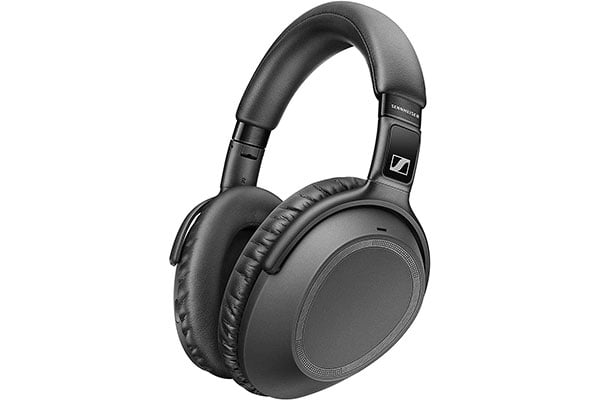
I've been using Sennheiser since my teenage DJ'ing days and I still have two pairs fully working from 20 years ago. They certainly do last.
This pair have fantastic adaptive noise cancellation, which ensures an outstanding listening experience even in busy environments.
Battery life is 30 hours, and they run on Bluetooth 5, as expected. Currently on sale at $250.
2. Sony Noise Cancelling WH1000XM3
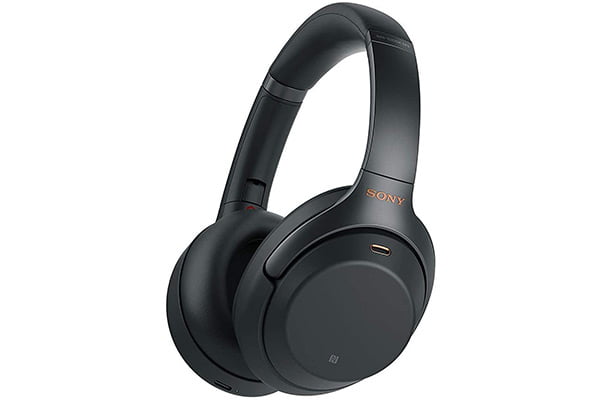
These Sony headphones are arguably the best Bluetooth headphones on the market.
They have a 4-40,000 Hz frequency response and Sony's proprietary HD noise canceling processor, Qn1.
They offer 30 hours of playback and 5 hours on just 10 minute's charge.
They also have the added bonus of a detachable wire, so you can choose to listen via Bluetooth or wired. Currently on sale at $278
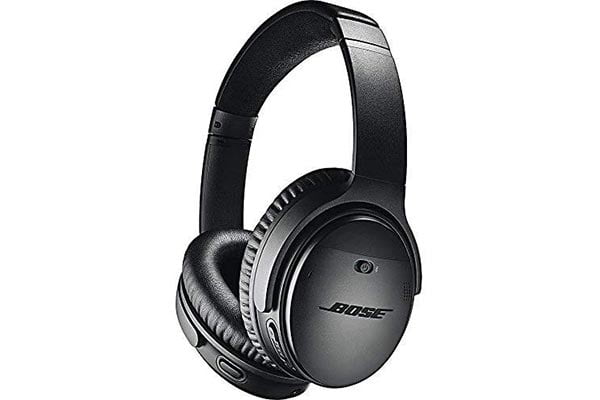
The Bose Quiet Comfort Series have gained massive popularity due to Bose's reputation for quality. I love the Bose sound; I've had two pairs and enjoyed both. I also have a BOSE stereo system in my kitchen.
Bose do not publish frequency response information but our own testing shows they go down to around 10 Hz and up to around 28,000 Hz.
They are really comfortable and the ANC is impeccable. We've heard from a number of BBM users using both the first and second series, and no one has ever had a bad word to say about them.
That said, if I had to choose right now, the Sony are higher spec, use newer componentry, and have a longer lasting battery, as do the Sennheiser's. Currently selling at $200.
We didn't include earbuds here, as over-ear headphones are preferable for Bluetooth and listening to our binaural beats music.
That said, earbuds would work just fine, even the Airpod ones by Apple. It's just that the frequency response and isolating nature of over-ear headphones is more suitable for this type of meditation music.
+ See all Bluetooth headphones here
A Final Tip and a Few Words
One final tip we'd like to offer is that you should try to choose a headphones model post 2018, when Bluetooth 5 was introduced.
That doesn't mean models pre this era aren't good, but in terms of value for money and ensuring the best sound quality, this is the way to go.
If you buy a more recent model, and you step over the $150 mark, you will ensure a certain standard of quality, in build and sound, and they will do justice to your binaural beats music.
Bluetooth technology continues to get better, and for most, at a range of 1-2 meters, the difference in sound will not be noticeable to that of wired headphones. We are sure it won't be long before the two technologies are completely on par, anyway.
Additionally, many models come with a wired mode too, so you can have the best of both worlds.
I hope that we've helped you better understand Bluetooth technology, and that this information will help you better navigate the marketing material found on the product pages and assist you in making a more informed purchase decision.








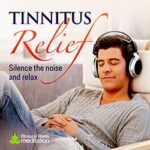

Are there some in ear headphones who do the job? I want to wear them when I work 🙂
Hi Pär, Do you mean Bluetooth ones? There are some wired suggestions under section 10 on this page.
I can use headphones because of TMJ and Migraines. I can only sleep on one side currently. I really really want to give this a good shot. As a former sleep tech I’m familiar with EeGs of the different brain waves and what they look like and can visualize them. I just thought I’d share. It’s pretty interesting and ironic! I also know way more about sleep and the importantance of the different stages compared to the amount of time most people think that they knock themselves out for. But I brag. 🙂
So I have been looking at getting the best pair of small speakers I can afford. I have seen neck headphone type speekers and then small set of speakers. And now I am aware from reading this I would make sure of the speaker capabilities and Bluetooth vs cable.
I had an idea of adhesive somehow because I had to tape my mask on a few time during COVID when I was having a flare. Not sure I could do that with headphones.
Anyway, any suggestions you may have would be great. I assume I’m going to lose so of the sound and benefits because I can’t use the best equipment but I figured some is better than none.
One other question if you don’t mind. I found a free app on Google store with b. beats. Is that quality enough? Or something on Spotify more useful? You have me wondering now if quality of the beats is something to look into!
Thanks!
Hi Christina, the problem is that you have to wear headphones with Binaural Beats to benefit due to the way the tech works. How about sleepphones? See here: https://amzn.to/3TBF6r5